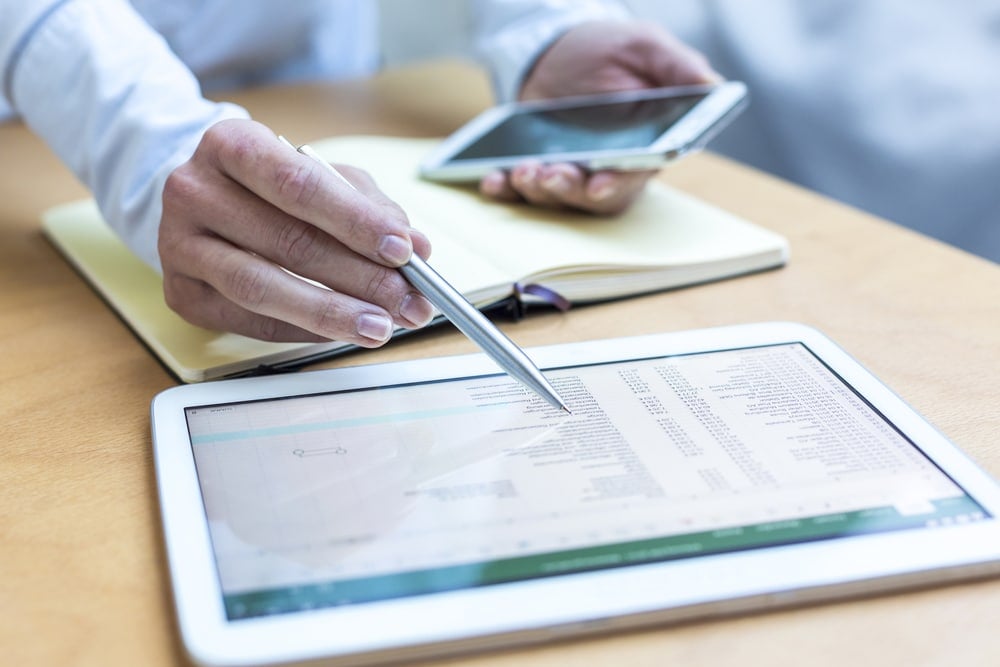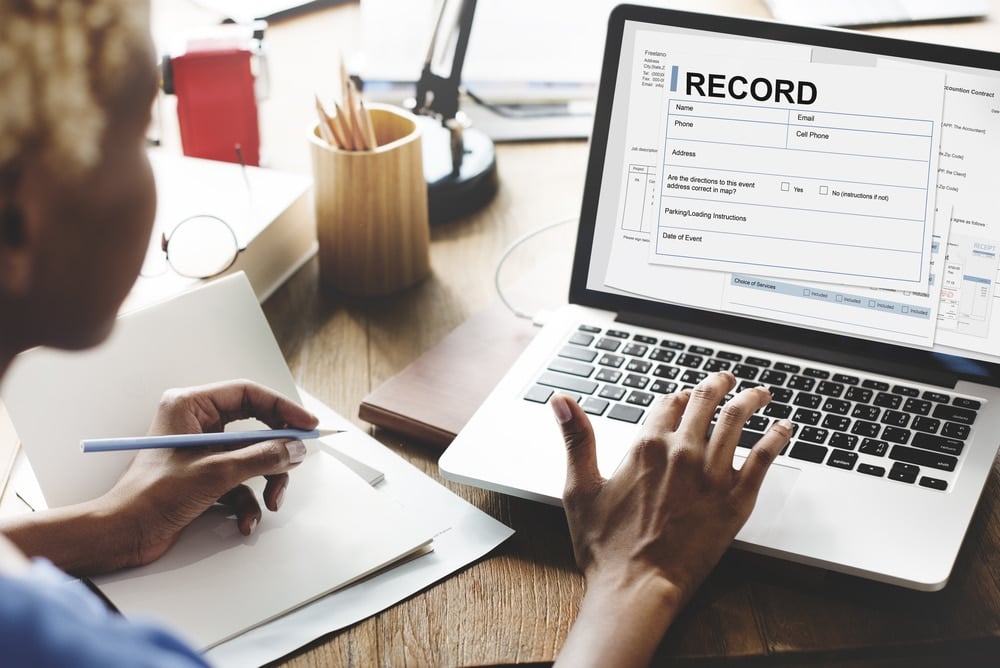How to Get Phone Records: What You Need to Know
Cindy Ellis - July 18, 2022

Phone records are a collection of incoming and outgoing phone calls that are recorded by phone service providers. Every phone service provider keeps records for phone calls to monitor call traffic, and these records can even be used in court. In fact, phone service providers are required to keep phone records by law. That said, getting phone records is easier said than done, especially if you’re going about getting the records the wrong way.
While the process can be tedious and time-consuming, we’re here to help get phone records through the proper legal channels. Read on to learn everything you need to know about phone records and how to obtain them.
What Are Phone Records?
Phone records are a collection of data collected by phone service providers. Service providers collect information about calls, texts, emails, and even data transfers. While phone records list the date, time, and duration of phone calls, the content of the call is not recorded. Therefore, phone records are a list of the date, time, phone number, and duration of phone calls.
When it comes to phone records, accessing them is simple if you want to get your own phone records. You can go to your service provider’s website or check the records that come in the mail with the phone bill. While you can’t always get phone records, you can use a subpoena to obtain records for court cases.
What Can Phone Records Be Used For?
Phone records can be used for several things, especially if you’re dealing with scammers or private numbers. While private numbers don’t always show up on phone records, you can coordinate with your phone company to “trap” private numbers. In these cases, the private number can appear on the phone records, and your provider can block the phone number for you.
Phone records can also be used to find out information. You can learn who your spouse or child is calling (if you’re on the same plan) and track scam callers using the same number. Pulling information from phone records can also help during police and federal investigations. Information is not recorded, but call times can be tracked and used as evidence.
Phone records can also be used to find information about text messages and emails. Depending on the provider, there will be details of incoming and outgoing messages. While the times and dates are available, the content of the messages is not.
To get more information than a phone record, we recommend using a people search tool for a detailed report about someone.
Can You Find Someone With Phone Records?
There are a few ways to find someone with phone records. The first way is during a police or federal investigation. Authorities can use phone records to identify callers and where they are calling from. This is useful for cases of harassment, especially if someone is being threatened.
That said, you can find people using phone records with a reverse phone search with Information.com. When finding someone with a reverse phone search, you need to find their phone number in your records and then plug their number into a reverse phone lookup tool. Some social media websites also have tools to help you find people using their phone numbers.
The lookup tool can give you a detailed report about the owner of that phone number, including their name, physical address, social media information, and more.
Once you have access to the caller’s first and last name, you can enter it into Information.com’s people search tool, which can possibly provide an even more detailed report than the phone lookup report.
The tool is simple to use and only requires a first and last name. However, any additional information you find can help you narrow down your search. From there, simply enter their information and run a search. If you find the person you’re looking for, you can open a full report. These reports include relatives, criminal backgrounds, previous known addresses, dating applications, and more.
Can You Get Phone Records Legally?
Yes, you can obtain phone records legally. You can get your personal and even other people’s phone records if you go through the proper legal channels. That said, you have to get a subpoena to get the phone records of people who are not connected to your phone plan.
A subpoena can only be used for court cases and if the phone records are relevant evidence for the court case. Phone records can be obtained legally for federal and civil court cases.
How to Get Phone Records From Your Service Provider
If you want to get your phone records from your service provider, it can often be a simple process. You can obtain phone records for your phone number and other phone numbers on your phone plan. Keep in mind that you can only get phone records for numbers that are linked to your phone plan. Even if someone is related to you or a spouse, you can’t access their records unless the accounts are joined in some way.
Check the Phone Bill
The simplest way to get your phone records is to check the phone bill. Service providers typically bill you once per month and send a letter in the mail with all of your information. Depending on your phone provider, the bill will contain call records, text message information, and more. Phone bills can also feature information about data usage.
If you’re on a phone plan with multiple people, the records for each number will be kept separately. However, some phone companies might combine all the records, which makes it harder to organize. You can find phone records for several phones using this method.
Contact Your Service Provider
Another way to get phone records is to contact your service provider. Phone companies are legally obligated to keep records, so they’re available to access by you and the government. Calling your provider can prompt them to send you a document that contains the phone records, or they’ll help you make an online account.
When you call a phone provider for phone records, there are a few things you need to be aware of. First and foremost, the records can only be secured for phones connected to your plan. Additionally, you have to provide some personal information.
Most phone providers will ask for:
- Your account number
- The cell phone number
- A home phone number
- An email address
- Your home address
- The last four digits of your social security number
After providing this information, there might be a few more steps to follow, but you’ll be able to access your phone records shortly.
Get Your Phone Records Online
Most phone service providers have websites. On these websites, you can see your billing cycle, pay your bill, and access your phone records. Essentially everything you could need from a phone company can be found on the company’s website. You can also look up information about other phone numbers connected to your plan.
Before you can access your phone records online, you’ll need to create an account. To do so, you’ll need your account number and some other account-sensitive information. Most websites will give you instructions to help you create an account, but you can always contact your service provider if you feel stuck.
These are the safest methods for obtaining your personal phone records. Of course, you must go through the proper legal channels to get phone records from someone not on your plan.
How to Get Someone Else’s Phone Records
Getting phone records for your personal phone plan is straightforward, but things get complicated when you need someone else’s phone records. While you can attempt to ask someone for their records, there’s a good chance they’ll decline. When this happens, you have two options. You can use a public records database or file for a subpoena.
Public Records Search
According to the Freedom of Information Act, anyone can access records from federal agencies. Some states also have laws that allow people to search state records. When using a public records search, you can find call information for politicians and some workers within government agencies.
You need the person’s first and last name to perform a public records search. Once you have it, you can enter it into Information.com’s public records database to learn more about someone’s phone records. That said, some states, like California, are more strict about public records databases. In these cases, you’ll have to use a subpoena for all non-personal phone records.
Still, searching public records is free and can be helpful for gaining access to a politician or government worker’s phone records.
Subpoena
Another way to get phone records is through a subpoena form. A subpoena can be used to get a witness testimony or access evidence like phone records. There can be harsh penalties if a witness fails to appear or if evidence is not produced. This is why subpoenas are one of the most effective methods for getting phone records.
Typically subpoenas are forms that lawyers fill out, but if you’re representing yourself (like in small claims court), you can fill the form out yourself. Once the subpoena is submitted, the judge can approve or decline it. Subpoenas can be used by the federal government, state governments, and the police.
A few things need to be established for a subpoena to be authorized. These include:
- The documents need to be relevant to the specific court case
- Compliance from all parties; otherwise, there are penalties
- The information sought must be specific, so phone records from 10 years ago are irrelevant for a crime that happened one year ago
- There needs to be a clear reason to access phone records to help the court case
A subpoena can help you get phone records from almost anyone. The catch is that it needs to be approved by a court. Unfortunately, that’s not always possible.
Get the Phone Records You Need Today
Gaining access to phone records can help you in numerous ways. You can have your service provider block phone numbers, acquire evidence for court cases, and more. However, it’s important to get phone records the right way. Illegally obtaining phone records makes the evidence inadmissible in court, and there can be negative legal consequences.
Luckily, phone records are easy to obtain if they’re for your personal device or public information. For example, many government officials use mobile phones for work, and some states provide these records as public information. Using a database like Information.com’s public records search tool can help you find almost anything you need.






